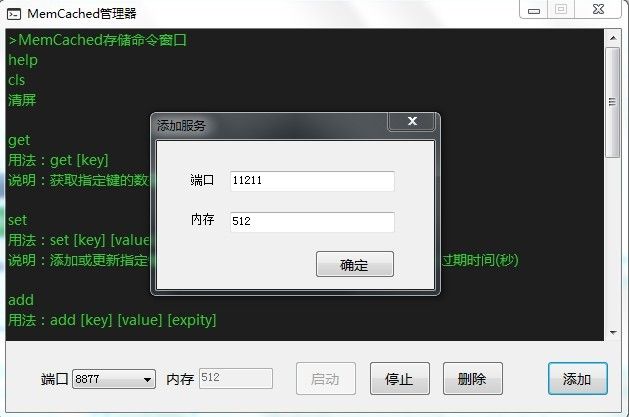iOS网络通信http之NSURLConnection
iOS网络通信http之NSURLConnection
移动互联网时代,网络通信已是手机终端必不可少的功能。我们的应用中也必不可少的使用了网络通信,增强客户端与服务器交互。这一篇提供了使用NSURLConnection实现http通信的方式。
NSURLConnection提供了异步请求、同步请求两种通信方式。
1、异步请求
iOS5.0 SDK NSURLConnection类新增的sendAsynchronousRequest:queue:completionHandler:方法,从而使iOS5支持两种异步请求方式。我们先从新增类开始。
1)sendAsynchronousRequest
iOS5.0开始支持sendAsynchronousReques方法,方法使用如下:
- (void)httpAsynchronousRequest{
NSURL *url = [NSURL URLWithString:@"http://url"];
NSString *post=@"postData";
NSData *postData = [post dataUsingEncoding:NSASCIIStringEncoding allowLossyConversion:YES];
NSMutableURLRequest *request = [NSMutableURLRequest requestWithURL:url];
[request setHTTPMethod:@"POST"];
[request setHTTPBody:postData];
[request setTimeoutInterval:10.0];
NSOperationQueue *queue = [[NSOperationQueue alloc]init];
[NSURLConnection sendAsynchronousRequest:request
queue:queue
completionHandler:^(NSURLResponse *response, NSData *data, NSError *error){
if (error) {
NSLog(@"Httperror:%@%d", error.localizedDescription,error.code);
}else{
NSInteger responseCode = [(NSHTTPURLResponse *)response statusCode];
NSString *responseString = [[NSString alloc] initWithData:data encoding:NSUTF8StringEncoding];
NSLog(@"HttpResponseCode:%d", responseCode);
NSLog(@"HttpResponseBody %@",responseString);
}
}];
}
sendAsynchronousReques可以很容易地使用NSURLRequest接收回调,完成http通信。
2)connectionWithRequest
iOS2.0就开始支持connectionWithRequest方法,使用如下:
- (void)httpConnectionWithRequest{
NSString *URLPath = [NSString stringWithFormat:@"http://url"];
NSURL *URL = [NSURL URLWithString:URLPath];
NSMutableURLRequest *request = [NSMutableURLRequest requestWithURL:URL];
[NSURLConnection connectionWithRequest:request delegate:self];
}
- (void)connection:(NSURLConnection *)theConnection didReceiveResponse:(NSURLResponse *)response
{
NSInteger responseCode = [(NSHTTPURLResponse *)response statusCode];
NSLog(@"response length=%lld statecode%d", [response expectedContentLength],responseCode);
}
// A delegate method called by the NSURLConnection as data arrives. The
// response data for a POST is only for useful for debugging purposes,
// so we just drop it on the floor.
- (void)connection:(NSURLConnection *)theConnection didReceiveData:(NSData *)data
{
if (mData == nil) {
mData = [[NSMutableData alloc] initWithData:data];
} else {
[mData appendData:data];
}
NSLog(@"response connection");
}
// A delegate method called by the NSURLConnection if the connection fails.
// We shut down the connection and display the failure. Production quality code
// would either display or log the actual error.
- (void)connection:(NSURLConnection *)theConnection didFailWithError:(NSError *)error
{
NSLog(@"response error%@", [error localizedFailureReason]);
}
// A delegate method called by the NSURLConnection when the connection has been
// done successfully. We shut down the connection with a nil status, which
// causes the image to be displayed.
- (void)connectionDidFinishLoading:(NSURLConnection *)theConnection
{
NSString *responseString = [[NSString alloc] initWithData:mData encoding:NSUTF8StringEncoding];
NSLog(@"response body%@", responseString);
}
connectionWithRequest需要delegate参数,通过一个delegate来做数据的下载以及Request的接受以及连接状态,此处delegate:self,所以需要本类实现一些方法,并且定义mData做数据的接受。
需要实现的方法:
1、获取返回状态、包头信息。
- (void)connection:(NSURLConnection *)connection didReceiveResponse:(NSURLResponse *)response;
2、连接失败,包含失败。
- (void)connection:(NSURLConnection *)connection didFailWithError:(NSError *)error;
3、接收数据
- (void)connection:(NSURLConnection *)connection didReceiveData:(NSData *)data;
4、数据接收完毕
- (void)connectionDidFinishLoading:(NSURLConnection *)connection;
connectionWithRequest使用起来比较繁琐,而iOS5.0之前用不支持sendAsynchronousRequest。有网友提出了AEURLConnection解决方案。
AEURLConnection is a simple reimplementation of the API for use on iOS 4. Used properly, it is also guaranteed to be safe against The Deallocation Problem, a thorny threading issue that affects most other networking libraries.
2、同步请求
同步请求数据方法如下:
- (void)httpSynchronousRequest{
NSURLRequest * urlRequest = [NSURLRequest requestWithURL:[NSURL URLWithString:@"http://google.com"]];
NSURLResponse * response = nil;
NSError * error = nil;
NSData * data = [NSURLConnection sendSynchronousRequest:urlRequest
returningResponse:&response
error:&error];
if (error == nil)
{
// 处理数据
}
}
初识MemCached
吹牛
没接触过MemCached,也没有打算要学习它,本人做web起步晚(有365天这样),近两周来是想了解一下asp.net的缓存和Session的工作原理,但"上错花轿遇到狼",便开始对MemCached产生好感觉,官网上看看其.net客户端,发现都是使用其文本协议现实现,于是突发其想,自己来实现个基于二进制协议的.net客户端(算是给.net打气还是丢脸呢?),并以此实现了asp.net的分布式OutputCache和分布式Session。当然,我实现的未必好,个人能力有限,时间也比较少。
描述
Memcached 是一个高性能的分布式内存对象缓存系统,用于动态Web应用以减轻数据库负载。它通过在内存中缓存数据和对象来减少读取数据库的次数,从而提供动态、数据库驱动网站的速度。Memcached基于一个存储键/值对的hashmap。其守护进程(daemon )是用C写的,但是客户端可以用任何语言来编写,并通过memcached协议与守护进程通信。这段落引用自百度百科,MemCached网站是http://memcached.org/,二进制协议的webi是http://code.google.com/p/memcached/wiki/BinaryProtocolRevamped
正文
我不想在此随笔就把全部内容写完,因为可能比较多,我会写好的每一篇的链接放到此页面中,做一个小小的系列来讲解:
MemCached相关下载:点击下载 压缩包包含x86和x64版的Memcached服务端、本人写的memcached管理器(MemCachedManager.exe)、C#实现的memecahced二进制协议调用组件MemCachedLib.dll
下载包包后,可以直接启动管理器来对memcached服务端的添加、删除、修改、停止等,还可以简单的通过命令与服务端进行交互。
能提供MemcacheLib的实现代码吗?
当然能,留着发霉是不好的,后期我会继续维护,如果可能,放到开源服务上(怕是Memcached越来越没人鸟)
这里是整个解决方案,大家可以下来看看我拙劣的代码,代码有注释,将就一下,周末我再把上面的空白补充。
MemCached二进制协议请求包详解
敬请关注
Memcached二进制协议响应包详解
敬请关注
通过MemcachedLib实现自己的缓存提供者
敬请关注
通过MemcachedLib实现自己的Session提供者
敬请关注
